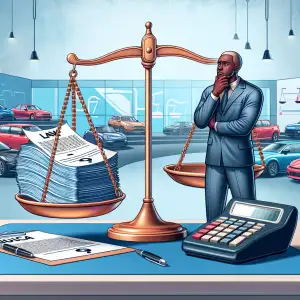Little Euro: Big Impact?
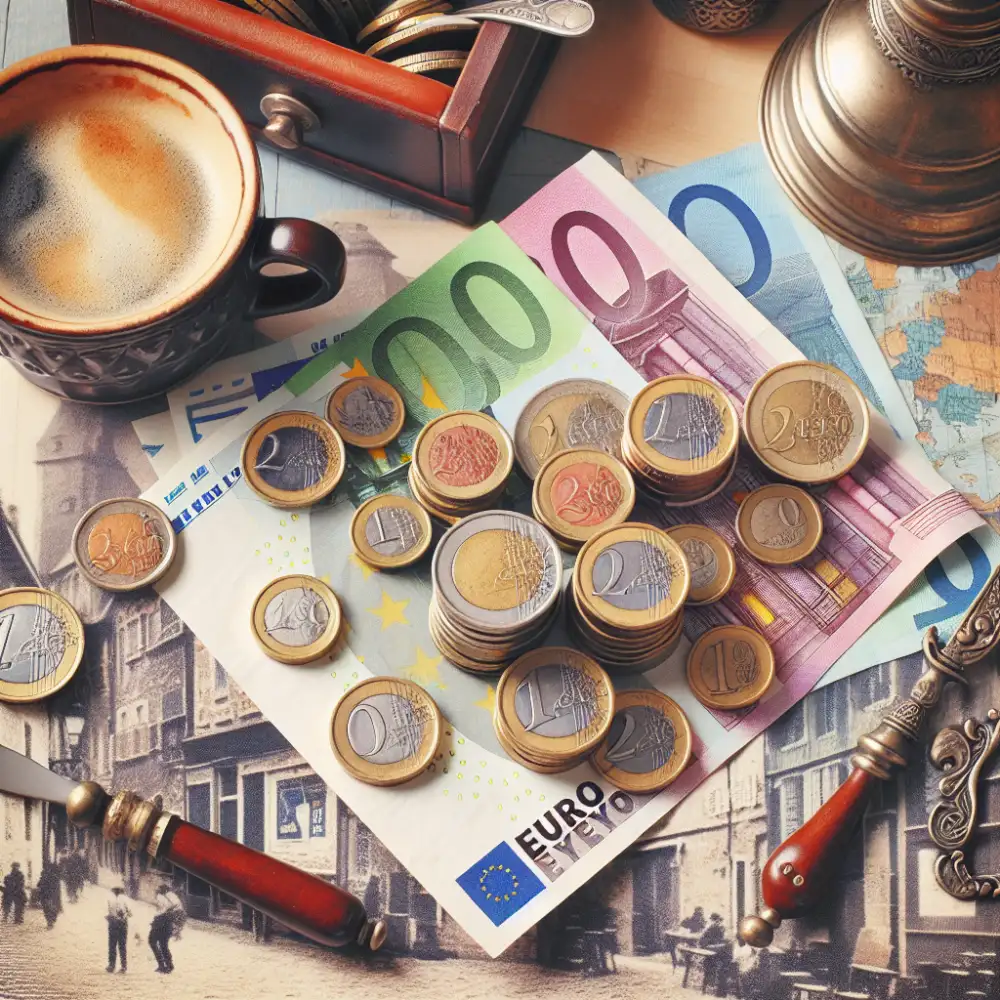
- What is little euro?
- Purchasing power challenges
- Impact on daily expenses
- Savings and investment hurdles
- Psychological effects of limited funds
- Strategies for managing a little euro
- Seeking financial assistance and advice
- Exploring alternative income sources
- Importance of budgeting and frugality
- Maintaining a positive financial outlook
- Resources for financial literacy and support
What is little euro?
The "little euro" isn't exactly what it sounds like. It's not a separate currency or a smaller denomination of the euro. Instead, it refers to the relatively small amount of physical euro currency that some countries within the Eurozone have chosen to adopt. This phenomenon is particularly noticeable in countries like Austria and Germany.
Several factors contribute to this. Firstly, these countries had deeply ingrained cash-based cultures before adopting the euro. People were accustomed to using banknotes and coins for everyday transactions. Secondly, concerns about privacy and potential government oversight associated with electronic transactions have fueled a preference for cash. Some individuals simply feel more secure and in control of their finances when using physical money.
Additionally, the infrastructure for electronic payments, while widespread, might not be as seamlessly integrated into all aspects of daily life compared to countries with higher "little euro" usage. This can make carrying a reasonable amount of cash more practical for smaller purchases or interactions with businesses that haven't fully embraced digital payment systems.
The "little euro" phenomenon highlights the diverse attitudes and habits surrounding cash usage within the Eurozone. While some countries have enthusiastically embraced digital transactions, others maintain a strong attachment to physical currency, influenced by cultural norms, privacy concerns, and practical considerations.
Purchasing power challenges
The euro's relatively low value against other major currencies can pose significant challenges, especially when dealing with small amounts. Imagine trying to buy a simple coffee in a country with a much stronger currency. A coffee costing €2.50 might seem reasonable, but if your home currency is weak, that seemingly small amount could translate to a hefty sum. This discrepancy can make everyday purchases feel surprisingly expensive, putting a strain on your travel budget.
The impact is even more pronounced when buying souvenirs or trying to enjoy local experiences. That charming handmade trinket or a quick street food snack can quickly eat into your funds when the exchange rate is unfavorable. It's not just about the big expenses; even small purchases can add up, leaving you with less to spend on the things you truly value during your trip.
Impact on daily expenses
The introduction of the euro and its smaller denominations has had a subtle but noticeable impact on daily expenses across the Eurozone. For starters, the standardization of currency has made it easier for consumers to compare prices across borders, potentially leading to savings on goods and services. However, the perception of the "little euro" – the one and two euro coins – has also influenced spending habits. Some argue that these smaller denominations make it easier to spend without feeling the pinch, potentially leading to small, incremental increases in daily expenditures. This phenomenon, sometimes referred to as "euro illusion," suggests that consumers may be less conscious of the value of money when dealing with smaller denominations.
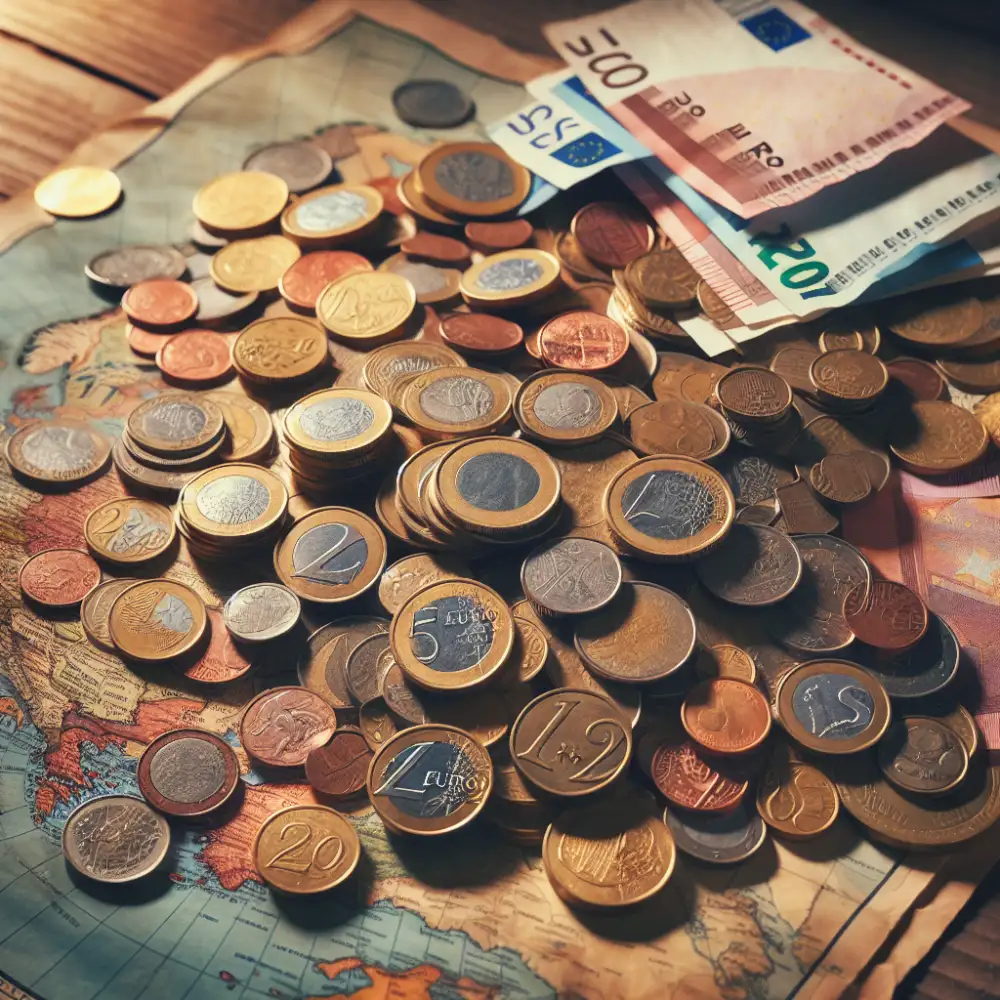
Furthermore, the availability of one and two euro coins has led to an increase in micropayments for services that were previously free or paid for in larger sums. Think of public restrooms, parking meters, and even small snacks from vending machines. While these individual expenses might seem insignificant, they can accumulate over time and contribute to a sense of "death by a thousand cuts" for consumers' wallets.
Savings and investment hurdles
Saving small amounts of money, especially in a currency like the euro, can present unique challenges. The relatively low interest rates offered by many European banks mean that even diligent savers might see their balances grow slowly, particularly after accounting for inflation. This can be discouraging, especially for young people or those trying to build a financial safety net.
| Item | Approximate Price in Euros | Considered "A Little Euro"? |
|---|---|---|
| Cup of Coffee | 2.50€ | Maybe |
| Movie Ticket | 12€ | No |
| Piece of Fruit | 0.80€ | Yes |
Investing with a small amount of euros can also seem daunting. Minimum investment thresholds for certain financial products, like mutual funds or bonds, might be out of reach for those with limited capital. Additionally, transaction fees can eat into a small investment, diminishing potential returns. This can make it difficult for individuals with limited savings to diversify their portfolios effectively.
Furthermore, the value of the euro itself fluctuates, and exchange rates can impact the purchasing power of savings, especially for those living outside the Eurozone. This adds another layer of complexity for those trying to grow their savings or make the most of their investments.
Despite these hurdles, it's important to remember that even small amounts of money, consistently saved and wisely invested, can grow over time. Exploring options like micro-investing platforms, fractional shares, or euro-denominated exchange-traded funds (ETFs) can provide accessible entry points for those with limited capital. Seeking financial advice tailored to your specific circumstances can also help you navigate the challenges and make informed decisions to reach your financial goals.
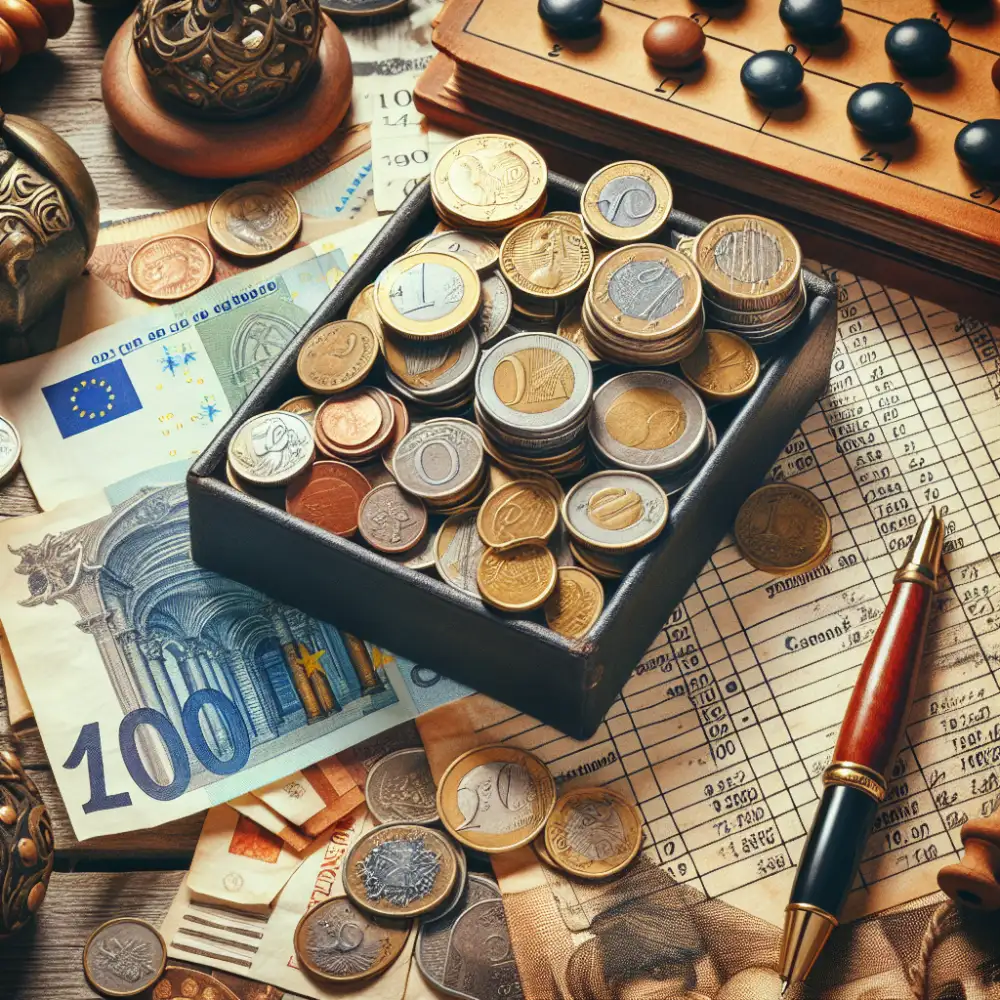
Psychological effects of limited funds
Living with limited funds, especially when dealing with a currency like the euro where even small purchases add up, can take a significant toll on mental well-being. The constant worry about making ends meet, cutting back on necessities, and feeling unable to participate in social activities can lead to chronic stress and anxiety. This financial strain can manifest in various ways, from difficulty sleeping and concentrating to feelings of guilt, shame, and low self-esteem.
The pressure to stretch every euro can be mentally exhausting, leading to decision fatigue and impacting other areas of life. Individuals may find themselves constantly calculating expenses, sacrificing their own needs for basic necessities, and feeling trapped in a cycle of financial insecurity. This can strain relationships, as financial disagreements are a common source of conflict. Furthermore, limited funds can restrict access to opportunities for personal growth and development, such as further education or travel, leading to feelings of frustration and hopelessness.
It's important to remember that experiencing these emotions is a normal response to a difficult situation. Seeking support from loved ones, financial advisors, or mental health professionals can provide coping mechanisms and strategies to navigate the challenges of living with limited funds.
Strategies for managing a little euro
Managing a small amount of euros, like what you might have leftover from a trip, can be a bit tricky. It's not enough to justify exchanging back into your home currency due to fees, but you also don't want to just leave it sitting around.
One option is to save it for your next European adventure. Even a small amount can add up over time, especially if you're a frequent traveler. You can keep it in a designated travel fund or simply store it safely until your next trip.
If you're feeling generous, consider donating your leftover euros to a charity that operates in Europe. Many international organizations accept donations in euros, and even a small amount can make a difference.
Another option is to use your euros to purchase souvenirs or small gifts online. Many European retailers accept euros, and you can find unique and interesting items that will remind you of your trip.
Finally, if you're really stuck, you can always try using your euros at businesses in your home country that cater to European tourists. Some restaurants, shops, and hotels may accept euros as a courtesy, although the exchange rate may not be favorable.
Seeking financial assistance and advice
Finding yourself with a small amount of European currency, like a few euros, might leave you wondering about its best use. While it might seem insignificant, there are still options available to you.
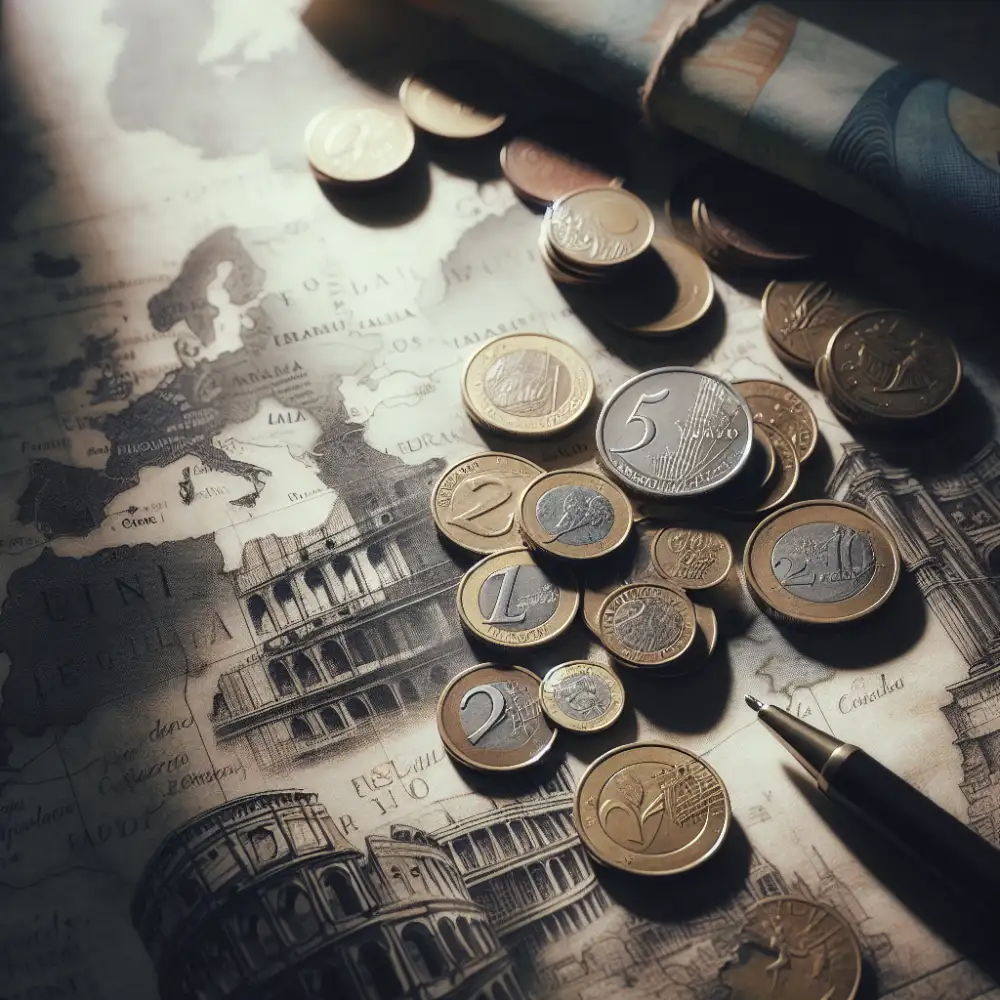
Consider donating it to charity. Many international airports have collection boxes for leftover currency, allowing you to contribute to a good cause.
Alternatively, you could save it for your next trip to a country using the euro. Even a small amount can add up over time or be useful for incidentals upon arrival.
If you're looking for information or advice on managing your finances, it's best to consult reputable sources. Websites of financial institutions or government agencies often provide helpful resources and guidance.
Remember, even a small amount of money can be managed wisely. By exploring your options and seeking reliable advice, you can make the most of your remaining euros.
Exploring alternative income sources
With a small amount of euros, especially if it's just a little, your investment options might seem limited. However, don't underestimate the power of small beginnings. One option is micro-investing platforms. These platforms allow you to invest small amounts, often as little as a euro, in a diversified portfolio of stocks, bonds, or other assets. It's a great way to dip your toes into investing without risking a significant amount of capital. Another avenue is peer-to-peer (P2P) lending platforms. These platforms connect borrowers with individual lenders, allowing you to earn interest by lending small amounts of money to individuals or businesses. While not without risk, P2P lending can offer potentially higher returns compared to traditional savings accounts.
Consider fractional shares if you're interested in investing in individual stocks but find the price of a full share daunting. As the name suggests, fractional shares allow you to buy a portion of a share, making it possible to invest in companies with high share prices even with a limited budget. Remember, investing always carries risks, and it's crucial to research and understand the potential downsides before making any investment decisions.
If you're seeking alternative income sources rather than investment opportunities, your options might be more limited with a small amount of euros. However, you could explore online platforms that offer micro-tasks or freelance gigs. These platforms often have low barriers to entry and allow you to earn small amounts of money by completing tasks like data entry, writing short articles, or participating in surveys. While the pay for these tasks is usually modest, it can be a way to supplement your income with a small initial investment of time and effort.
Importance of budgeting and frugality
Living in the Eurozone, especially when dealing with a tight budget, requires a keen understanding of the value of every euro, especially those smaller denominations often overlooked. It's easy to dismiss the impact of a few cents here and there, but frugality, even in small amounts, can have a significant cumulative effect. Think of it like this: saving a euro a day might seem insignificant, but over a year, that's €365 back in your pocket.
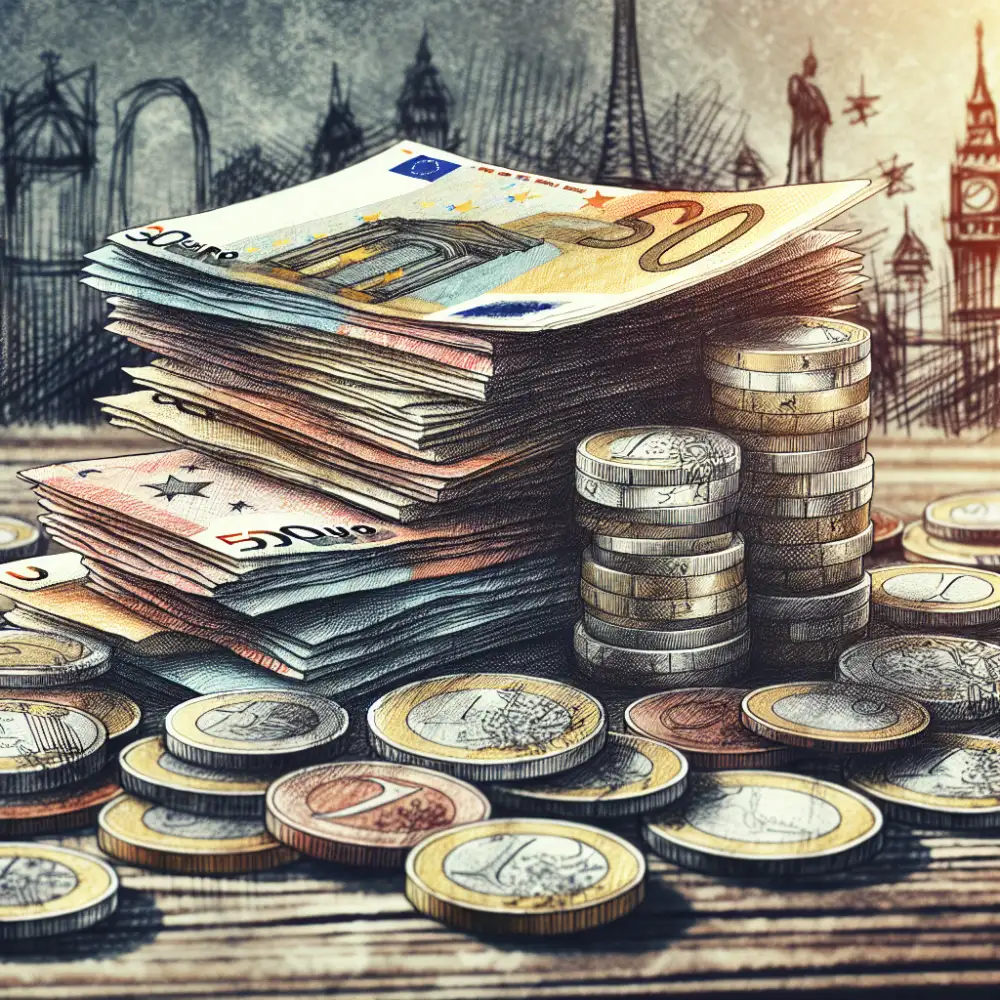
Budgeting becomes your roadmap to financial stability. By tracking your income and expenses, you gain control over where your money goes. This awareness allows you to identify areas where you can cut back and save, even if it's just a matter of choosing a less expensive coffee or packing a lunch instead of eating out.
Remember, frugality isn't about deprivation, it's about making conscious choices with your money. It's about recognizing that every euro has the potential to grow if managed wisely. Small acts of frugality, combined with a well-structured budget, can pave the way for a more secure financial future, allowing you to achieve your financial goals, no matter how small your starting point may seem.
Maintaining a positive financial outlook
It's easy to feel disheartened when you see a small amount of euros in your wallet, especially with the euro's recent struggles. But remember, a positive financial outlook isn't solely determined by the amount you have right now. It's about adopting healthy financial habits and focusing on long-term financial well-being. Start by creating a budget, no matter how small your income. This helps you track your spending, identify areas to save, and allocate funds wisely. Explore ways to boost your income, even if it's through a side hustle or selling unused items. Remember, small amounts add up over time. Instead of focusing on what you lack, celebrate your small victories. Every euro saved is a step towards your financial goals. Seek out free financial resources and advice available online or through community programs. Knowledge is power, and understanding your finances better can empower you to make informed decisions. Most importantly, cultivate a mindset of patience and perseverance. Building a solid financial foundation takes time, and it's okay to start small. Every step you take, no matter how small, contributes to a brighter financial future.
Resources for financial literacy and support
Managing your finances, even small amounts, is an important life skill. Thankfully, many resources are available to help you become more financially literate and find support when you need it.
The European Banking Federation offers resources and information on various financial topics, including budgeting, saving, and borrowing. National banks within the Eurozone often have educational initiatives and materials on their websites aimed at improving financial literacy among citizens.
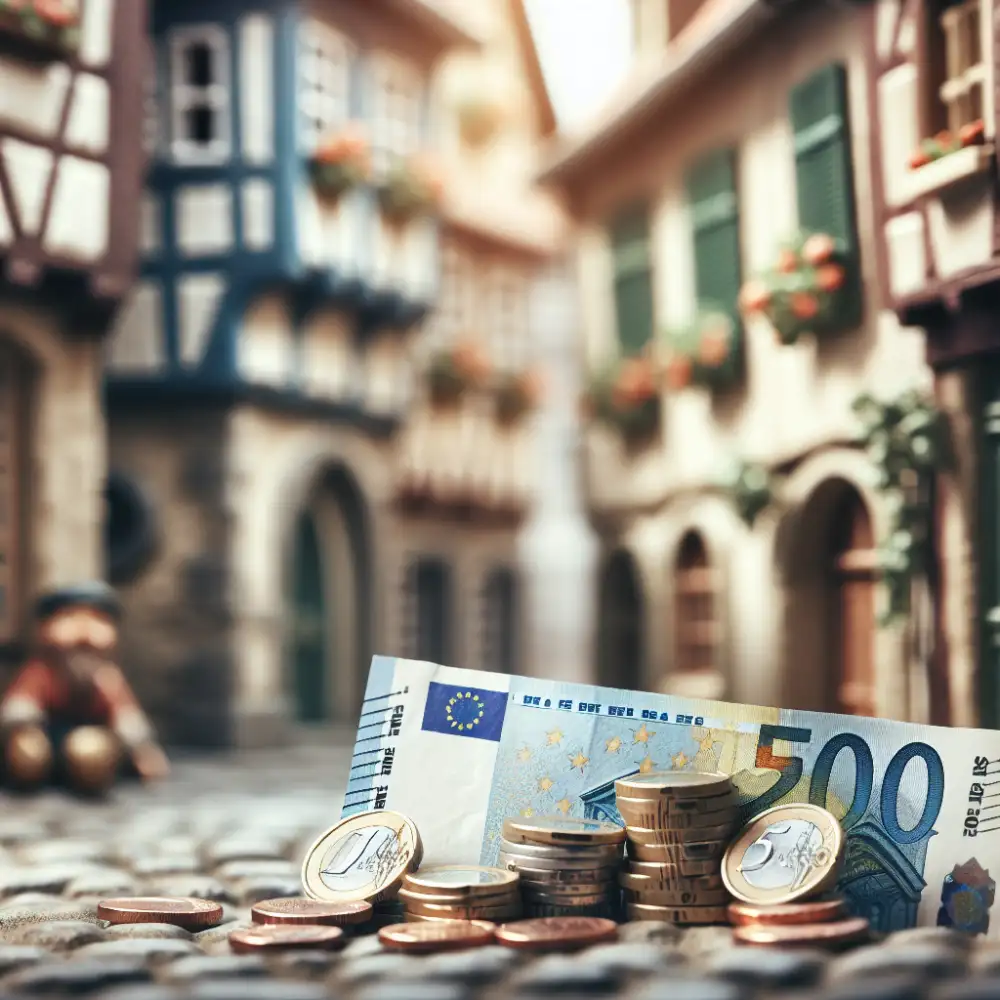
Non-profit organizations focused on financial literacy, like the National Endowment for Financial Education, offer workshops, tools, and guidance. Your local library or community center may also host financial literacy workshops or have resources available.
Remember, even small steps towards improving your financial knowledge can make a big difference in the long run. Don't hesitate to seek out these resources and take control of your finances.
Published: 12. 07. 2024
Category: Food

